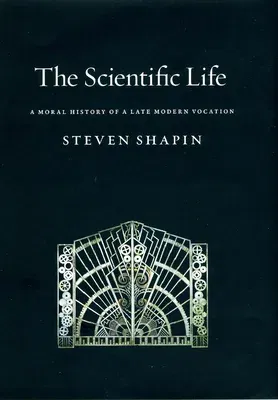Who are scientists? What kind of people are they? What capacities and
virtues are thought to stand behind their considerable authority? They
are experts--indeed, highly respected experts--authorized to describe
and interpret the natural world and widely trusted to help transform
knowledge into power and profit. But are they morally different from
other people? The Scientific Life is historian Steven Shapin's story
about who scientists are, who we think they are, and why our
sensibilities about such things matter.
Conventional wisdom has long held that scientists are neither better nor
worse than anyone else, that personal virtue does not necessarily
accompany technical expertise, and that scientific practice is
profoundly impersonal. Shapin, however, here shows how the uncertainties
attending scientific research make the virtues of individual researchers
intrinsic to scientific work. From the early twentieth-century origins
of corporate research laboratories to the high-flying scientific
entrepreneurship of the present, Shapin argues that the radical
uncertainties of much contemporary science have made personal virtues
more central to its practice than ever before, and he also reveals how
radically novel aspects of late modern science have unexpectedly deep
historical roots. His elegantly conceived history of the scientific
career and character ultimately encourages us to reconsider the very
nature of the technical and moral worlds in which we now live.
Building on the insights of Shapin's last three influential books,
featuring an utterly fascinating cast of characters, and brimming with
bold and original claims, The Scientific Life is essential reading for
anyone wanting to reflect on late modern American culture and how it has
been shaped.

